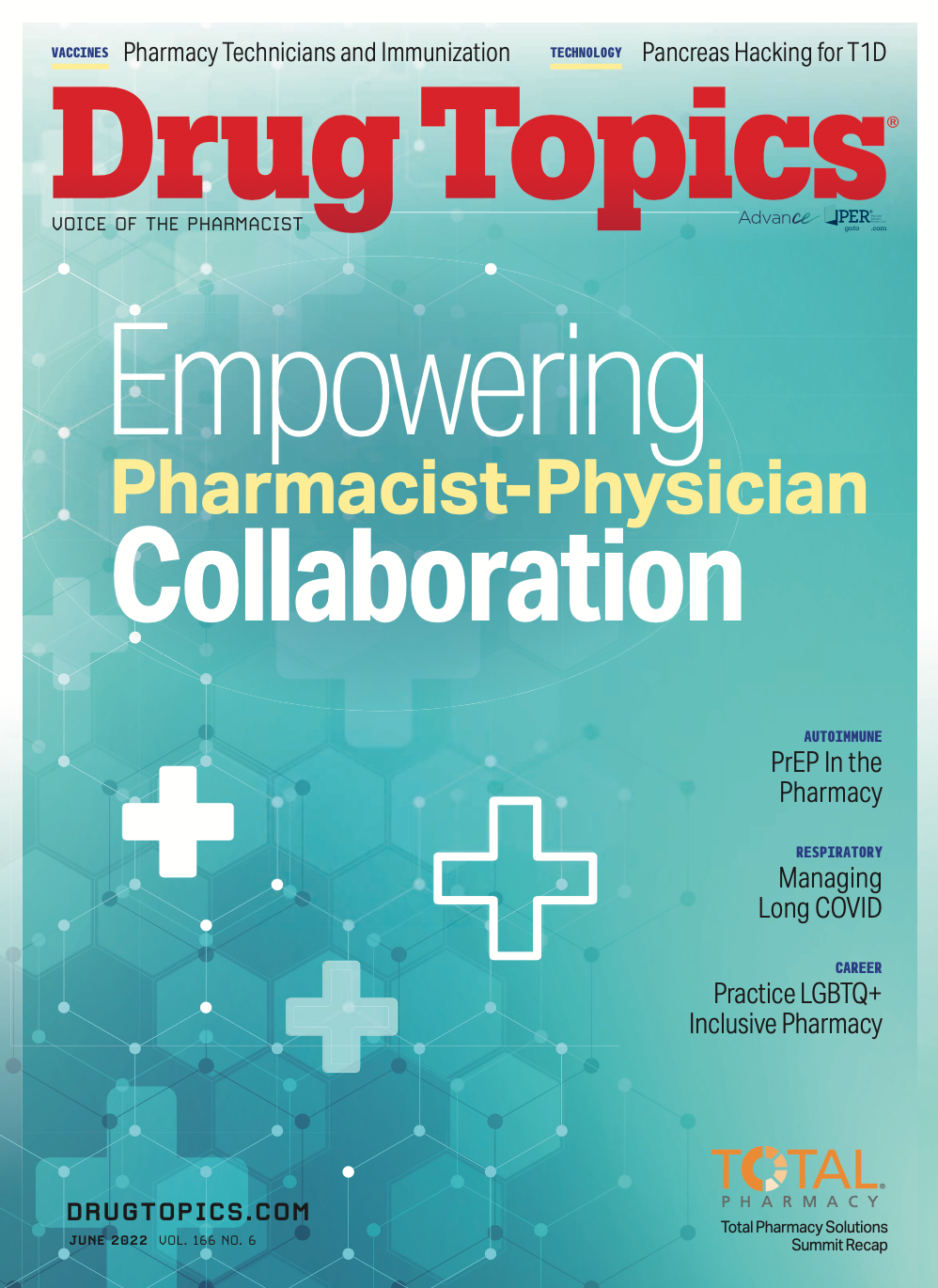Curb HIV Spread With PrEP Access in the Pharmacy
PrEP is an effective way to fight HIV transmission, and more pharmacies are providing this important service.
HIV remains a significant public health problem in the United States, with new infections frequently occurring. In 2019, a federal response—Ending the HIV Epidemic—was announced, with a goal of drastically decreasing the number of new infections by 2030.1
Pre-exposure prophylaxis (PrEP) is a once-daily pill to prevent HIV infection. Although PrEP has a more than 90% efficacy rate, it is vastly underused.2,3 Pharmacists can provide access to PrEP services in their pharmacies, including sharing information about the therapy, helping patients enroll in a PrEP care program, and coordinating with other health care providers to ensure their patients receive the best possible care. Pharmacists can also address any concerns their patients may have about PrEP and provide support throughout the course of PrEP treatment.
Lopez

Maria Lopez, PharmD, president of clinical pharmacy service for Mission Wellness Pharmacy, a specialty pharmacy in San Francisco and the first California pharmacy to initiate PrEP, explained that it’s important for pharmacies to offer PrEP because they are accessible and have highly trained medication experts on hand to help.
“The COVID-19 pandemic highlighted the ability of pharmacies...to provide access to tests and vaccines. They can utilize their expertise in similar ways for public health to address HIV and STI [sexually transmitted infection] epidemics,” she said.
Kristen Nichols, PharmD, BCPS, BCPPS, BCIDP, an infectious diseases specialist and a senior content management consultant, clinical effectiveness, at Wolters Kluwer, Health, noted there are disparities in the receipt of PrEP along age, race, sex, and geography lines. For example, women are less likely to initiate PrEP, and Black women are less likely to initiate it than White women.
Nichols

“Access through pharmacies would likely increase the number of patients who are able to get started on PrEP; pharmacists are considered some of the most trustworthy and are the most accessible health care professionals,” she said. “There may be a lower barrier to care entry if a person can get engaged in care at their pharmacy as compared [with] other health care settings.”
“Pharmacies are motivated to sell prescriptions, which means that the system is already in place for encouraging adherence,” Nichols added. “For example, automated refill processes could assist with a vital component of PrEP, which is adherence and retention in therapy.”
Minniti

Anthony V. Minniti, RPh, co-owner of Bell Pharmacy in Camden, New Jersey—which offers its own PrEP clinic inside—believes pharmacists can really “move the needle” with PrEP in much the same fashion as they did with COVID-19 testing and vaccination. “We came up with a business approach to PrEP as a great opportunity to expand hands-on pharmacy practice,” he said. “We set about creating open access to our patient population back in 2017. We have a big population of those who are in need of PrEP, and we knew we needed to do this to improve access and health care outcomes.”
Education Matters
It’s not uncommon for patients to stop taking PrEP within a year of starting— or for patients to not take the medication as prescribed.
“Pharmacists are uniquely positioned to educate patients [and] help them overcome barriers to medication adherence—which is extremely important for it to prevent HIV infection— [as well as] social and economic barriers,” Lopez said. “Pharmacies often sell condoms, so having access [to PrEP] is a vital part of the whole package.”
Community pharmacists are also experienced in navigating medical and prescription insurance and assisting patients who are uninsured or underinsured. Improving access to HIV screening, which occurs prior to PrEP initiation, also allows earlier HIV detection in patients who may already be infected. This can improve outcomes by allowing them to receive care sooner.
At Bell Pharmacy, Minniti said, pharmacists use telehealth to help patients understand the PrEP process, with counselors available to track their patients’ usage.
Overcoming Challenges
Across the country, some pharmacies have only recently been allowed to offer PrEP services, with guidelines varying by state, and some are finding that offering these services is not without challenges. One such challenge is ensuring standard practices are set up for proper screening and prescribing procedures. In most instances, a collaborative practice agreement with a prescriber will need to be created, which can be complex.
“Pharmacy staff also need to be appropriately trained both in the provision of PrEP from a medication standpoint and also in building strong, trusting patient relationships,” Nichols said. “It’s very important that a pharmacy doesn’t start providing PrEP without being fully trained and prepared; that could actually set back PrEP efforts.”
With increasing demands on pharmacists’ time, it can also be a challenge to stay up to date on the necessary information and literature. Another difficulty is identifying appropriate candidates for PrEP. Pharmacists also should have access to experts for questions and specific patient situations.
“Unfortunately, unconscious (or conscious) bias may play a role in the treatment of patients who request PrEP,” Nichols said. “Pharmacy staff need to be trained—and nonjudgmental—to ensure the best outcomes. Many patients who are at higher risk may already have complicated relationships or have had bad experiences with the health care system. Not all pharmacists are comfortable or experienced in talking about some of the topics that need to be discussed in detail.”
Many pharmacies are not set up to maximize patient privacy. But because conversations about PrEP can be sensitive, it’s important to have a quiet, private place for the pharmacist and the patient to have in-depth, honest discussions.
Important Discussions
For pharmacies offering PrEP services, it’s vital that patients know these are available, what they are, and why they are important. Some key discussion points between a pharmacist and a patient, Nichols noted, include the importance of adherence (as these aren’t medications that you can miss and still prevent HIV), the importance of routine HIV testing, safe sex practices, and potential adverse effects and what to do if they occur.
“It seems that pharmacists who have graduated from pharmacy school more recently feel more comfortable discussing PrEP and have had more training and education on it,” Lopez said. “Training programs are needed, particularly for pharmacists who have been in practice longer, to ensure positive outcomes.”
References
1. What is ending the HIV epidemic in the U.S.? HIV.gov. Updated June 2, 2021. Accessed May 16, 2022. https://www.hiv.gov/federal-response/ending-the-hiv-epidemic/overview
2. Recommendations for the use of antiretroviral drugs during pregnancy and interventions to reduce perinatal HIV transmission in the United States. HIV. gov. Updated December 30, 2021. Accessed May 16, 2022. https://clinicalinfo.hiv.gov/en/guidelines/perinatal/prep
3. Boggs W. HIV preexposure prophylaxis underused by US adolescents. Reuters. May 11, 2020. Accessed May 16, 2022. https://www.reuters.com/article/hiv-prep-teens/hiv-preexposure-prophylaxis-underused-by-u-s-adolescents-idUSL1N2CT20C
